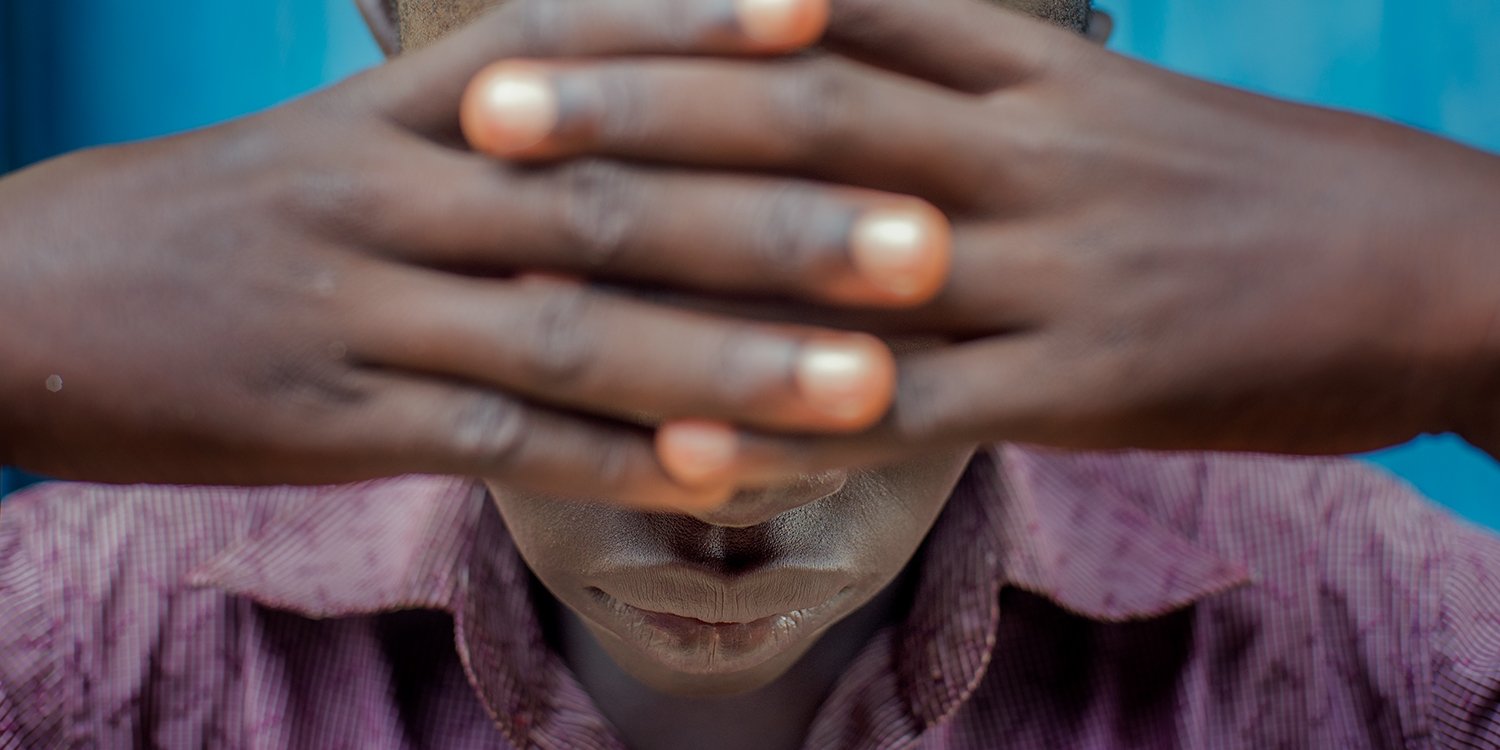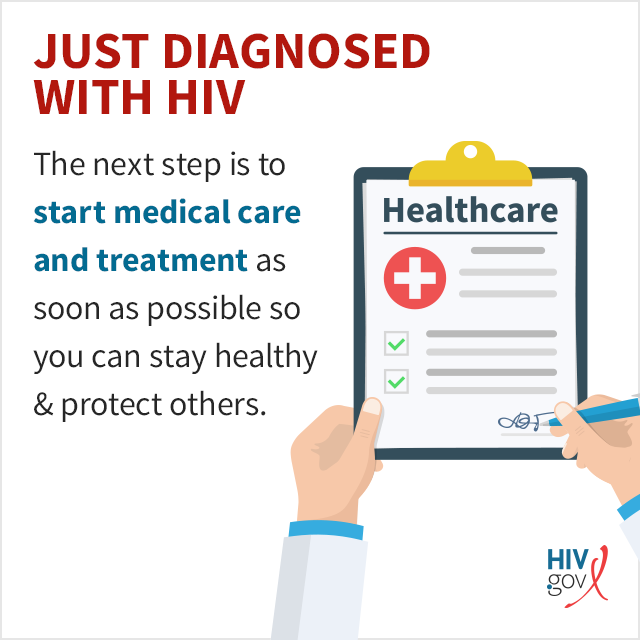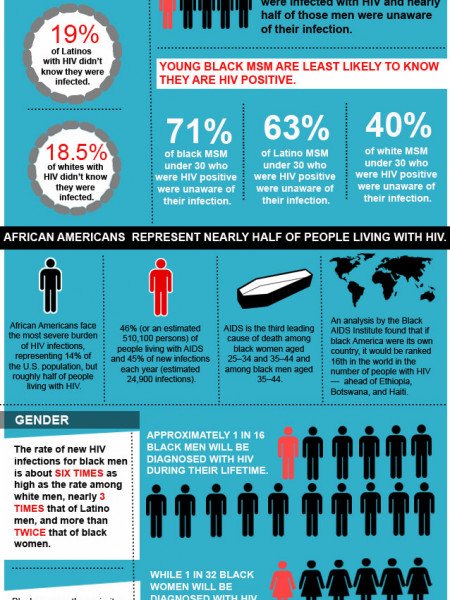Hiv Transmission In Australia
In Australia, HIV is commonly transmitted through:
- Unprotected anal or vaginal sex .
- Sharing any needles, syringes, or other injecting equipment.
- From mother to child during pregnancy, childbirth, or breastfeeding This can occur when the mother doesnt know she is HIV-positive, or is not on effective treatment.
- Tattooing or other procedures that involve unsterile or reused equipment.
- Needle stick injuries.
HIV is not transmitted by:
- kissing, hugging, massaging, mutual masturbation and other body contact
- social interaction
- sharing food, dishes, utensils, drinking glasses
- air, breath, or being coughed or sneezed on
- mosquito, insect or animal bites
- use of communal facilities .
It is perfectly safe to consume food and drinks prepared by someone who is HIV-positive even if theyre not receiving treatment.
People with HIV who are on treatment and achieve and maintain an undetectable HIV viral load cannot transmit HIV sexually.
Being Honest With Your Healthcare Professional
Be honest with your healthcare professional, they are not there to judge you, but help you make decisions so that they can plan and manage your care appropriately.
Its important to share information such as your sexuality as well as your alcohol and drug use history, as these factors can contribute to different risks, for example, complications with your treatment or sexually transmitted infections .
If you have any underlying health conditions or STIs, its important to get treated for these too. Sometimes different treatments interact with each other, so your healthcare professional needs to know what other drugs you might be taking.
Find Needle Exchange And Harm Reduction Programs
You can get free sterile harm-reduction supplies at over 35 needle exchange programs and over 370 access points across Ontario. Through these programs you can get:
- safer-injection equipment including:
Through these programs, you can also:
- safely dispose of both injection and crack smoking equipment
- get condoms
- get education and information
- get referrals and counseling
Find the closest needle-exchange and harm-reduction program by contacting a public health unit near you or call the AIDS and Sexual Health Info Line toll free at 1-800-668-2437.
You May Like: Can You Get Hiv From Having Sex One Time
Get Hiv Care And Treatment
The Ryan White HIV/AIDS Program works with cities, states, and local community-based organizations. The Program provides primary medical care and essential support services to more than half a million people each year. Through the Program, people living with HIV who have no insurance or are underinsured can get the HIV medical care and other support services they need.
Recognizing The Symptoms Of An Hiv Rash

You May Like: Do Condoms Help Prevent Hiv
Will There Ever Be A Cure For Hiv
Researchers and scientists believe we can find a cure for HIV. We know a lot about HIV, as much as certain cancers. Scientists are researching two types of cure: a functional cure and a sterilising cure.
There is no ‘natural cure’ or ‘herbal cure’ for HIV. Antiretroviral treatment is the only medication that is proven to effectively control HIV.
Why Do Some People With Hiv Infection Develop Aids
Over time, untreated HIV infection damages the immune system and makes it more difficult to fight infections and cancers.
Before there were effective treatments for HIV infection, all infected people went on to develop AIDS within about 10 years. Today, people with HIV who take effective treatment are unlikely to develop AIDS and will have a near-normal life expectancy. This is because these medicines keep the amount of virus in their blood under control and protect the immune system.
Don’t Miss: What Is Hiv 1 And 2 Antibody Test
Where Can I Go For Hiv Testing
You can get tested for HIV and other STDs at your doctors office, a community health clinic, the health department, or your local Planned Parenthood health center. You might want to get your HIV test at a place that also has HIV counseling .
You can either get an anonymous” or “confidential HIV test, depending on the laws in the state that you live in. Confidential” testing means your name is on the test, and the results go in your medical records. Your doctors and insurance company may also see the results. If you test positive, your results are sent to your local health department so they know the rates of HIV in your area. But your results are protected by privacy laws, so nobody else can see them without your permission.
“Anonymous” testing means your name isnt on the test. Youll get an ID number that youll use to find out your results. Your results wont go in your medical records, and they wont be sent to your insurance company or the health department youre the only one who will know them.
STD testing, including HIV testing, isnt usually automatically part of your regular checkup or gynecologist exam you have to ask for it directly. Be honest with your nurse or doctor so they can help you figure out what tests are best for you. Dont be embarrassed: your doctor is there to help, not to judge.
Why Do People With Hiv Need Stable Housing
Stable housing is closely linked to successful HIV outcomes. With safe, decent, and affordable housing, people with HIV are better able to access medical care and supportive services, get on HIV treatment, take their HIV medication consistently, and see their health care provider regularly. In short: the more stable your living situation, the better you do in care.
Individuals with HIV who are homeless or lack stable housing, on the other hand, are more likely to delay HIV care and less likely to access care consistently or to adhere to their HIV treatment.
Throughout many communities, people with HIV risk losing their housing due to such factors as stigma and discrimination, increased medical costs and limited incomes or reduced ability to keep working due to HIV-related illnesses.
Don’t Miss: How Do You Test For Hiv
Womens And Childrens Programs
Children under age 19 can receive free or low-cost healthcare through the Childrens Health Insurance Program . The income limits for CHIP enrollment depend on the state.
Many states also have programs to help women with limited incomes get quality healthcare.
You can find each states CHIP information here or call your states HIV/AIDS hotline for more information.
What Should I Do Until Theres A Cure For Hiv
For now, the best thing to do for your health is to test regularly for HIV. Testing is the only way to know for sure if you have the virus.
If youve already tested and your result is positive, youll be advised to start antiretroviral treatment as soon as possible. Treatment is the only way to manage HIV and prevent it from damaging your immune system. It also reduces the risk of passing HIV on to your sexual partners. With treatment, people living with HIV can have long and healthy lives.
Don’t Miss: How To Know You Have Hiv
Is There A Waiting Period
Unfortunately, yes. There is a state-wide waiting list for this program. It may take a while to get approved for financial services. Clients shouldnt hesitate to get on other wait lists, which have different services and eligibility .
Contact your CareCoordinator for more information. If you need help finding a Care Coordinator in your county, call the Oregon Department of Human Services HIV Care and Treatment Program office at 1-800-805-2313 or see the full list of HIV Case Management agencies by county at the DHS HIV Care and Treatment Program website.
Whats The Treatment For Hiv

Theres no cure for HIV, but there are treatments that help people with HIV live long, healthy lives. Antiretroviral therapy is a combination of medicines that slows down the effects of HIV in your body and can help you stay healthy for many years. It can also lower or even stop your chances of giving HIV to anyone else.
ART lowers the amount of HIV in your body sometimes to the point where HIV wont show up on standard blood tests. If your HIV viral load is so low that certain tests cant see it, its called undetectable. When someone has an undetectable viral load, they cant spread HIV to others during sex.
Its important to remember that even with an undetectable viral load, HIV is still present in your body. If you stop treatment your viral load can go up, making it possible to pass HIV to others you have sex with. Your doctor or nurse can help you find the treatment thats best for you to help keep your viral load low, so you can stay healthy.
Paying attention to your lifestyle can help you stay healthy too. This means eating well, getting enough sleep, exercising, learning how to deal with stress, and avoiding alcohol, smoking, and drugs.
Read Also: How Does Hiv Cause Aids
How Do I Avoid Passing Hiv On To Someone Else
If you are infected with HIV, the best way to prevent spreading HIV infection to others is to:
- take your medication as prescribed there is a very low risk of passing on HIV if your own infection is under control
- use condoms and a water-based lubricant for anal and vaginal sex
- never share needles, syringes and other injecting equipment
If you have HIV infection, you are expected to notify anyone who is at risk of exposure from you:
- Tell people you have had sex or taken drugs with. Your doctor can help you decide who may be at risk and help you to contact them either personally or anonymously.
- Tell anyone you intend to have sex with about your HIV status . This is required by law in some states.
If you are pregnant, talk to your doctor about starting antiretroviral treatment to prevent the infection passing to the baby during pregnancy, childbirth or breastfeeding. Read more about HIV and pregnancy.
Other Ways Hiv May Affect Your Life
- you will not be able to donate blood or organs
- you will not be able to join the armed forces
- you may have difficulty getting life insurance to cover a mortgage loan but life insurance is not compulsory when taking out a mortgage unless it’s an endowment mortgage, and there are now specialist life insurance policies for people with HIV
Don’t Miss: Does Hiv Make You Lose Weight
Protect Yourself From Hiv
The best way to protect yourself from HIV is to not have sex unless you’re in a relationship with only one person and you have both tested negative.
Here are other steps you can take to help prevent HIV:
- Use a latex condom with water-based lubricant every time you have vaginal or anal sex.
- If you share sex toys with your partner, use a condom and clean them between each use.
- Dont inject drugs or share needles.
Check out these condom do’s and don’ts.
Symptoms Of Hiv Infection
Some people may not develop any symptoms after contracting HIV and could remain undiagnosed until the symptoms of AIDS appear. This could be up to 10 years later.
However, 50% or more of people living with HIV may develop mild flu-like symptoms within 2 to 4 weeks. Early symptoms may include:
- chills
- muscle aches
- swollen glands
The symptoms of HIV infection may last from a few days to weeks. They may go away on their own.
Misdiagnosis of early HIV infection is common. If you think you have HIV, speak with your health care provider about being tested.
You May Like: What Are The Signs Of Hiv After 3 Months
Housing & Financial Benefits
Access a variety of services for people who are living with HIV and need help with their current housing or health insurance. We partner with the San Francisco Department of Public Health and the Mayors Office of Housing and Community Development to stabilize peoples housing through rental assistance and promote access to HIV care and medication. Many of our clients have been provisionally housed for significant periods, and without assistance, they would be unable to afford their rental units, leaving them in danger of homelessness.
The Ryan White Hiv/aids Program
The Ryan White HIV/AIDS program has been helping people with lower incomes managing HIV get access to care since 1990.
The program is overseen and managed by the Health Resources and Services Administration . It works with states, cities, and community organizations around the country to provide HIV treatment and services.
Those who join this program are assigned a case manager. They will figure out exactly what services someone is eligible for and how to access them.
Some eligible services through this program include:
- primary care
For someone to be eligible for the Ryan White HIV/AIDs program, theyll need to have:
- an HIV or AIDS diagnosis
- an income that falls within the states low-income guidelines
- no health insurance coverage or health insurance coverage that wont pay for HIV/AIDS care
The income limits for the program depend on the state. If someone is eligible, their income might qualify them for completely free access to services or access to services with a small copayment.
The case manager will explain exactly what someone qualifies for and if there will be any costs for the services.
You can get use this location map to find a Ryan White program clinic near you.
Also Check: Can You Catch Hiv From Oral
How Are The Drugs Taken
Most people who are getting treated for HIV take 3 or more drugs. This is called combination therapy or “the cocktail.” It also has a longer name: antiretroviral therapy or highly active antiretroviral therapy . Combination therapy is the most effective treatment for HIV.
People with HIV need to work closely with their providers to decide which drugs to take. Several coformulations are available, and for most patients, HIV treatment involves taking just 1 or 2 pills per day.
Get Your Prescriptions At The Village Pharmacy Were Here For You

-
Were local, small and mighty! The Village Pharmacy is your friendly, local, full-service, community pharmacy. No hassles. No lineups. Free Delivery. Free, easy-to-use app. Great staff. Great service.
-
Ready to switch? You can bring in your prescription, transfer your prescriptions from your current pharmacy, or, have your doctor send your prescription directly to The Village Pharmacy, 535 Yonge St. on PrescribeIT / fax.
-
Coming soon! This fall, The Village Pharmacy is opening a new location at Yonge & Eglinton. And, we have locations planned on Queen West, Bloor West, the Distillery district, Leslieville, and Richmond Hill, opening in 2022.
-
Need more info? or . Were here for you.
Read Also: What Is The Hiv Aids Rate In The United States
Hiv Testing And Your Rights
Testing for HIV is voluntary and can only be done with your informed consent, except in exceptional circumstances.
Before you are tested, you will be provided with information about what is involved. what the results might mean for you, and how to prevent HIV transmission in the future. All people who request an HIV test must receive this information from the test provider.
Under Australian and Victorian law, it is unlawful to discriminate against anyone who has HIV. Test results, and details on whether someone has been tested are strictly confidential. It is illegal for any information about a person being tested or a person with HIV to be disclosed without their permission.
Taking Care Of Yourself When Living With Hiv
FAST FACTS
Starting antiretroviral treatment as soon as possible, and sustaining it as part of your everyday routine, is the best way of ensuring that your immune system stays strong.
Exercising regularly, eating well, getting enough rest and quality sleep are all vital to maintaining your health.
Your mental wellbeing is just as important as your physical health. Talking about your concerns with family, friends or a support group can really help.
Having HIV doesnt have to stop you living a healthy life in the way that you choose to do. With the right treatment and care, you can expect to live as long as someone who doesnt have HIV. Find out how you can look after yourself and stay healthy.
Read Also: Can You Live With Someone With Hiv
Where Can You Get Tested For Hiv
You can get an HIV test at many places:
- Your health care providers office
- Health clinics or community health centers
- STD or sexual health clinics
- Your local health department
- Substance abuse prevention or treatment programs
Many pharmacies and some community-based organizations also offer HIV testing.
HIV testing is covered by health insurance without a co-pay, as required by the Affordable Care Act. If you do not have health insurance, some testing sites may offer free tests.
These places can connect you to HIV care and treatment if you test positive or can discuss the best HIV prevention options for you if you test negative.
You can also buy a home testing kit at a pharmacy or online.